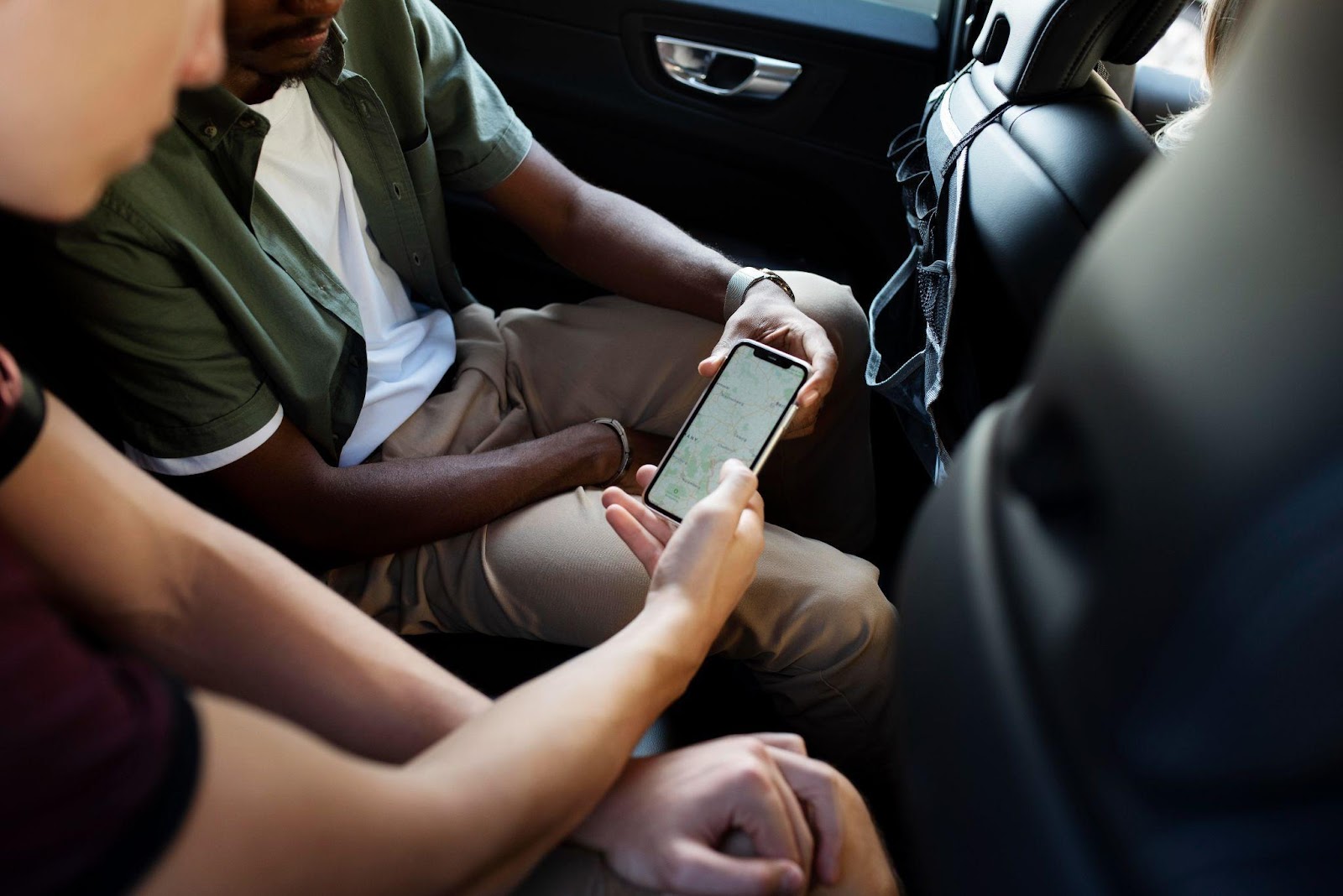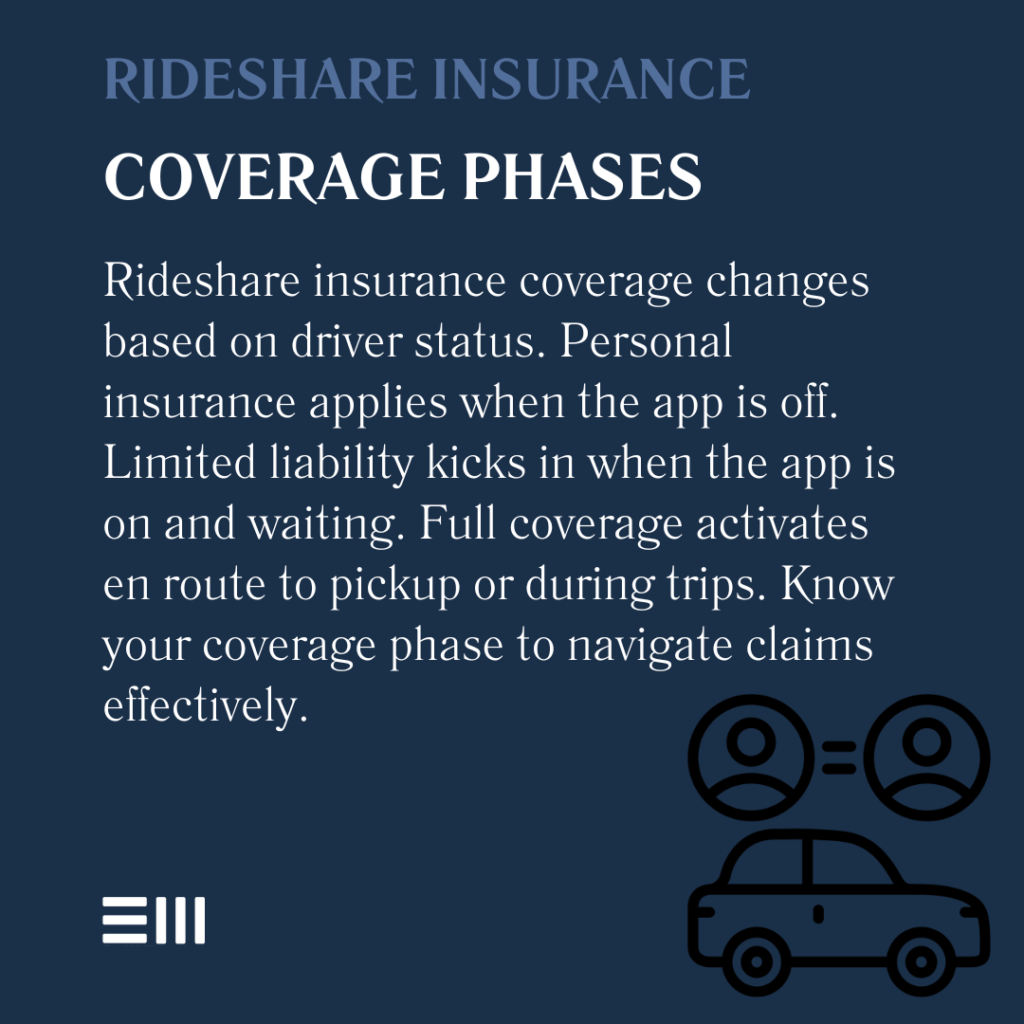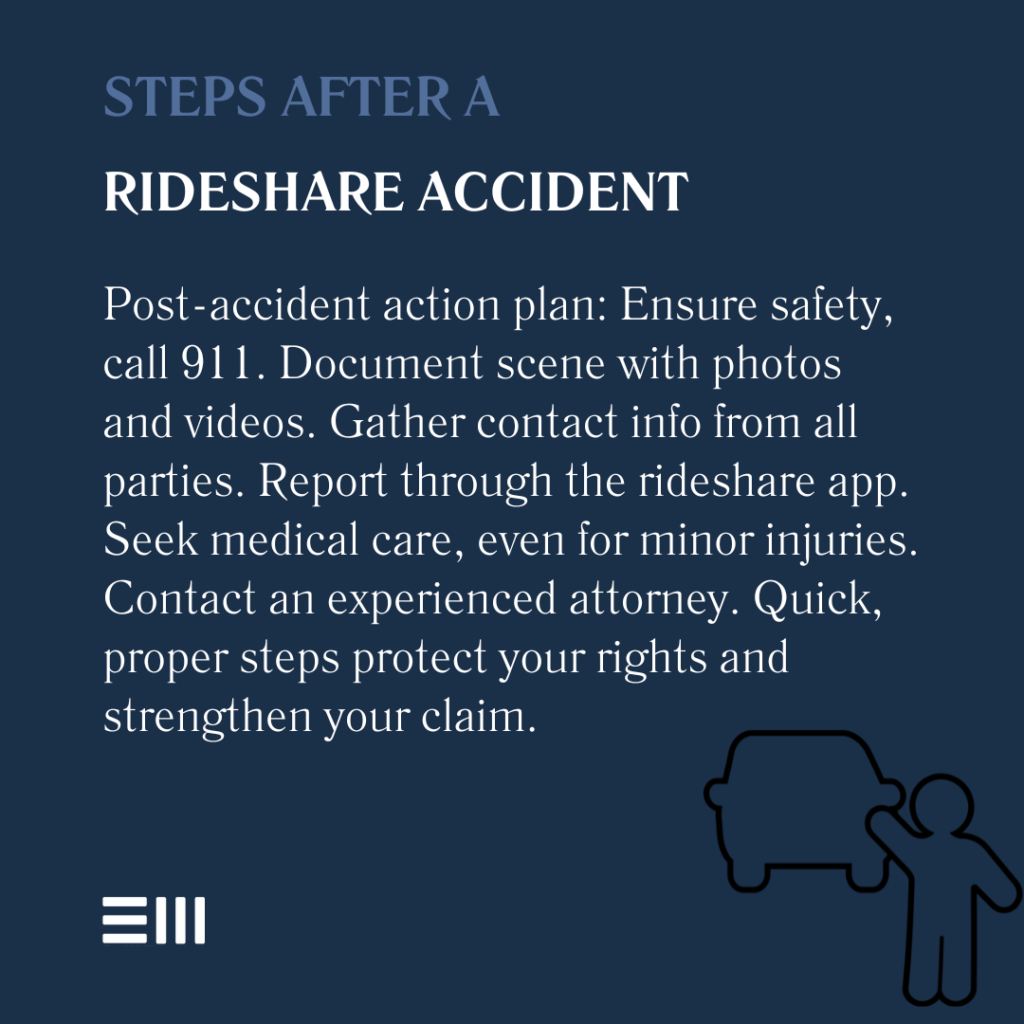
Picture this: You’re comfortably settled in the back seat of your Uber, scrolling through your phone, when suddenly—screeching tires, a loud crash, and your world turns upside down.
In an instant, your convenient ride transforms into a nightmare of twisted metal and shattered glass.
As the dust settles, a flurry of questions races through your mind: Who’s responsible? Will insurance cover this? What are your rights?
Understanding Rideshare Accident Liability
Navigating the aftermath of an Uber or Lyft accident can be complex. Unlike traditional car accidents, rideshare incidents involve multiple parties and insurance policies.
This complexity often leaves victims unsure about who’s responsible and how to seek compensation.
Understanding these intricacies is crucial for protecting your rights and securing fair compensation after a rideshare accident.
The Role of Rideshare Companies
Uber and Lyft operate under a unique business model that classifies drivers as independent contractors rather than employees. This classification impacts how liability is determined in accident cases.
The distinction between employees and contractors plays a significant role in shaping the legal landscape of rideshare accident claims.
Insurance Coverage Phases
Rideshare companies provide different levels of insurance coverage depending on the driver’s status at the time of the accident:
- App off: The driver’s personal auto insurance applies;
- App on, waiting for a ride request: Limited liability coverage from the rideshare company; and
- En route to pick up a passenger or during a trip: Full coverage from the rideshare company’s policy.
Knowing which insurance policy applies to your situation is essential for navigating the claims process effectively.

Alabama’s Contributory Negligence Rule
Alabama follows the contributory negligence rule, which can significantly impact accident claims. Under this rule, if a victim is found even 1% at fault for the accident, they may be barred from recovering damages.
This strict rule underscores the importance of building a strong case and working with experienced legal representation in Alabama rideshare accident claims.
Common Causes of Rideshare Accidents
Understanding the causes of rideshare accidents can help passengers stay vigilant and potentially avoid dangerous situations:
- Distracted driving due to app use;
- Fatigue from long driving hours;
- Unfamiliarity with local roads;
- Speeding to complete more rides; and
- Inadequate vehicle maintenance.
By recognizing these common causes, passengers can take proactive steps to ensure their safety during rideshare trips.
Steps to Take After a Rideshare Accident
If you’re involved in an Uber or Lyft accident in Alabama, taking the right steps immediately after the incident can significantly impact your ability to seek compensation:
- Ensure safety and call 911;
- Document the scene with photos and videos;
- Gather contact information from all parties involved;
- Report the accident through the rideshare app;
- Seek medical attention, even for minor injuries; and
- Contact an experienced rideshare accident attorney.
Following these steps can help protect your rights and strengthen your potential claim in the aftermath of a rideshare accident.

Seeking Compensation: Your Options
Victims of rideshare accidents in Alabama have several potential avenues for compensation.
Filing a Claim with the Rideshare Company’s Insurer
Depending on the driver’s status at the time of the accident, you may be able to file a claim with Uber or Lyft’s insurance provider.
This option often provides the most straightforward path to compensation in many rideshare accident cases.
Personal Injury Lawsuit
In cases of severe injuries or disputed liability, filing a personal injury lawsuit may be necessary to secure fair compensation.
While more complex, a lawsuit can sometimes be the best way to ensure all your damages are fully addressed.
Uninsured/Underinsured Motorist Coverage
If the at-fault driver lacks sufficient insurance, your own uninsured/underinsured motorist coverage may apply.
This coverage can provide a crucial safety net in situations where other insurance options fall short.
Understanding these options allows you to make informed decisions about how to proceed with your claim.
Challenges in Rideshare Accident Cases
Pursuing compensation for a rideshare accident can be challenging due to:
- Complex insurance policies;
- Multiple potentially liable parties;
- Alabama’s contributory negligence rule; and
- Rideshare companies’ resources and legal teams.
Recognizing these challenges highlights the importance of experienced legal representation in rideshare accident cases.
The Importance of Legal Representation
Given the complexities of rideshare accident cases, having experienced legal representation can make a significant difference in the outcome of your claim.
An attorney familiar with Alabama’s laws and rideshare regulations can:
- Investigate the accident thoroughly;
- Identify all potentially liable parties;
- Navigate complex insurance policies;
- Negotiate with insurance companies on your behalf; and
- Represent you in court if necessary.
The right legal team can level the playing field and help ensure you receive the compensation you deserve.
Frequently Asked Questions
Rideshare accidents often raise numerous questions for victims.
Here are answers to some of the most common inquiries we receive.
Who is Liable in a Rideshare Accident?
Liability in a rideshare accident depends on several factors, including the driver’s status at the time of the incident and the circumstances of the accident.
Potentially liable parties may include:
- The rideshare driver;
- Other drivers involved in the accident;
- The rideshare company (in certain circumstances); and
- Vehicle or parts manufacturers (in cases of mechanical failure).
Determining liability is a crucial step in pursuing compensation for your injuries and damages.
What Insurance Coverage Applies to Rideshare Accidents?
The applicable insurance coverage depends on the driver’s status:
- Driver offline: Personal auto insurance;
- Driver online, waiting for a ride request: Limited liability coverage from the rideshare company; and
- Driver en route to pickup or during a trip: Full coverage from the rideshare company’s policy.
Understanding these coverage phases is essential for navigating the claims process effectively.
How Long Do I Have to File a Claim After a Rideshare Accident?
In Alabama, the statute of limitations for personal injury claims is generally two years from the date of the accident.
However, it’s advisable to start the claims process as soon as possible to ensure evidence is preserved and witnesses’ memories remain fresh.
Adhering to this timeline is crucial to preserve your right to seek compensation.
Can I Sue Uber or Lyft Directly?
While it’s challenging to sue Uber or Lyft directly due to their classification of drivers as independent contractors, there are circumstances where the company may be held liable.
These situations often involve negligence in the hiring or retention of drivers.
Understanding the nuances of rideshare company liability can help you explore all potential avenues for compensation.
What Compensation Can I Recover in a Rideshare Accident Case?
Potential compensation in a rideshare accident case may include:
- Medical expenses (current and future);
- Lost wages and loss of earning capacity;
- Pain and suffering;
- Property damage;
- Emotional distress; and
- Loss of enjoyment of life.
The specific compensation you may be eligible for depends on the details of your case and the extent of your injuries.
How is Fault Determined in a Rideshare Accident?
Fault in a rideshare accident is determined through a thorough investigation that may include:
- Police reports;
- Witness statements;
- Traffic camera footage;
- Data from the rideshare app; and
- Expert accident reconstruction.
A comprehensive investigation is key to building a strong case and maximizing your chances of fair compensation.
What if the Rideshare Driver Was Not at Fault?
If another driver was at fault for the accident, you might need to file a claim with that driver’s insurance company.
If the at-fault driver is uninsured or underinsured, you may be able to claim under the rideshare company’s uninsured/underinsured motorist coverage.
Understanding your options in various fault scenarios can help you navigate the claims process more effectively.
Do I Need a Lawyer for a Rideshare Accident Claim?
While it’s not legally required, having an experienced rideshare accident attorney can significantly improve your chances of receiving fair compensation.
A lawyer can navigate the complex legal and insurance landscape, protect your rights, and advocate on your behalf.
The expertise of a skilled attorney can be invaluable in securing the best possible outcome for your case.
Protect Your Rights After a Rideshare Accident
Don’t let confusion about liability or insurance coverage prevent you from seeking the compensation you deserve.
Our experienced team is ready to guide you through every step of the process, from investigation to settlement negotiations or trial if necessary.
Can't find what you're looking for? Search our site below.










